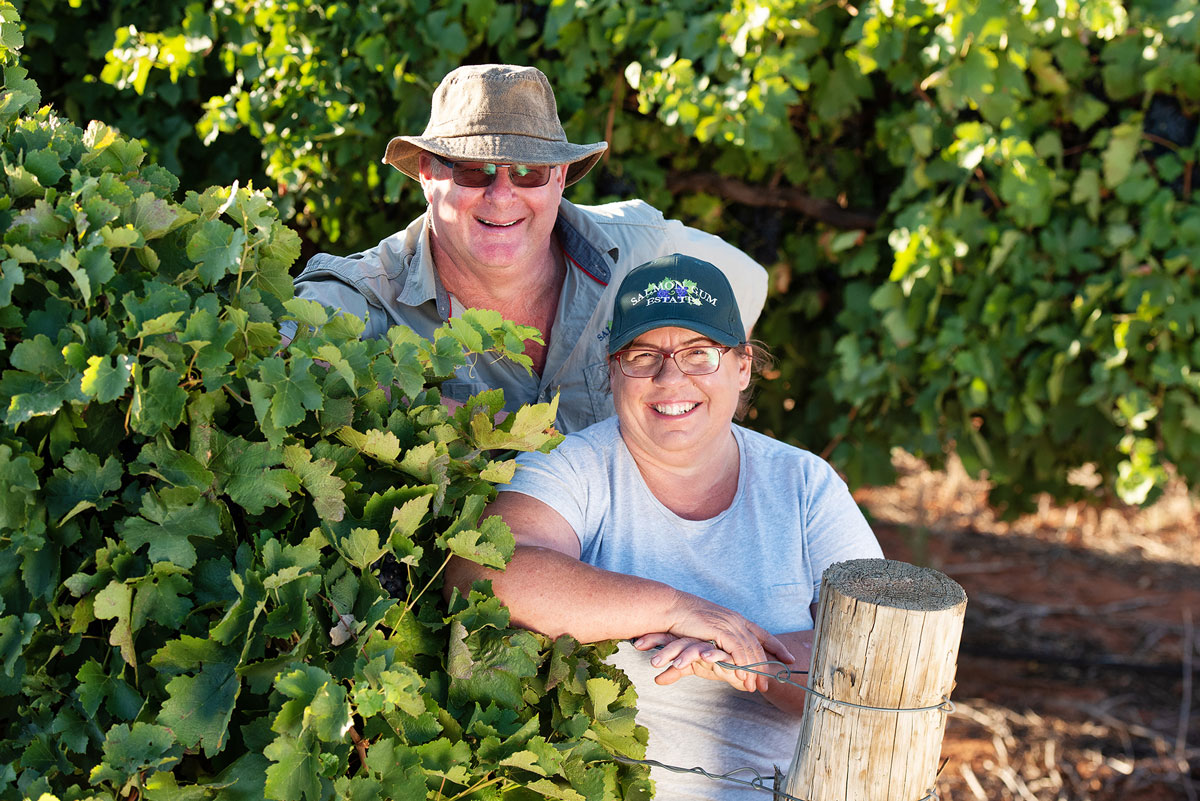
“Well, I guess, I’m the boss”, says Peter as though the notion has just occurred to him. “We’re a team, of course. But I’m the co-ordinator. Someone has to make the ultimate decisions”. Jacque agrees without hesitation.
“We all have our jobs”, she adds. Her list is impressive – it is she who controls the automated watering system every day, collects samples and checks the Baumé before picking. The remaining daily tasks are shared between Peter, Jacque and their full-time employee, Michael, a 27-year-old ‘youngster’ who helps optimise the IT requirements of running a modern and fast-growing Murray River vineyard.
Salmon Gum Estates, the Schulz’s Riverland vineyard, is a far cry from their early dry farming days in Sherlock in the Murray Mallee district. It was the lush green landscape and the relaxed lifestyle on the river that attracted them some 34 years ago. They bought 50 acres near Loxton, already planted out with citrus and grapes. Now, with 500 acres, they are one of the bigger family vineyards in the Riverland wine region.
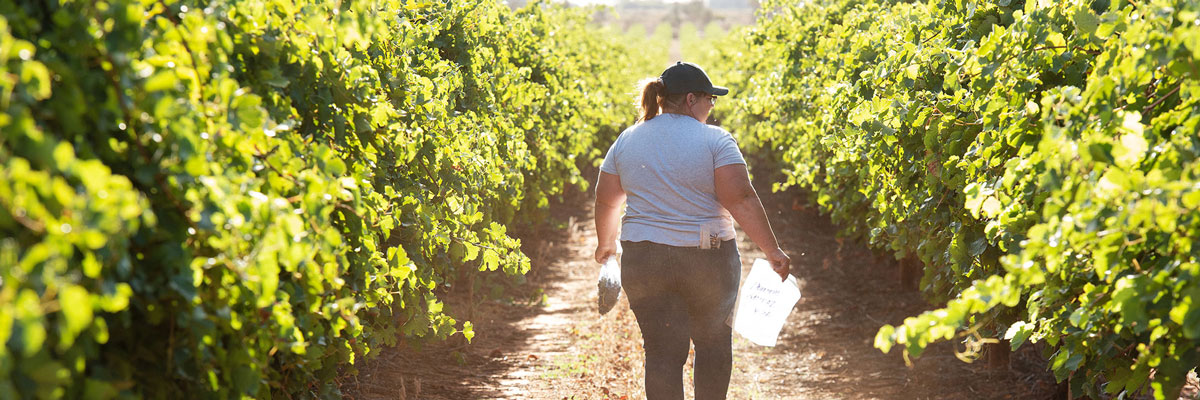
Their farming background is fundamental to their success but the progressive business they now run is very forward looking. They have embraced technology. State-of-the-art moisture probes, GPS, and a computerised irrigation system work to minimise waste and target the use of water. It is a far cry from the old sprinkler system that wasted water and hours of labour. An agronomist visits the vineyard on a regular basis and gives advice on the latest scientific findings on keeping diseases at bay.
But despite all the technology, the growing season – from October to mid-April – is full on, with very little respite. Grape growers are always at the mercy of the elements – excessive heat will mean that the vines must be cooled with twice-a-day watering; rain at the wrong time plays havoc with mould growth. But it is water that is front and centre of the operation to produce the best possible grapes for premium South Australian wine. To this end, they grow an organic cover crop of barley which aids water retention and is then mulched back into the earth, ensuring good soil health through organic, sustainable methods.
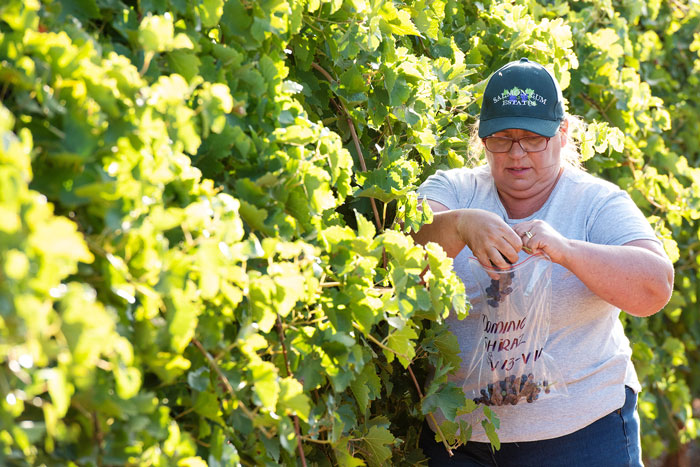
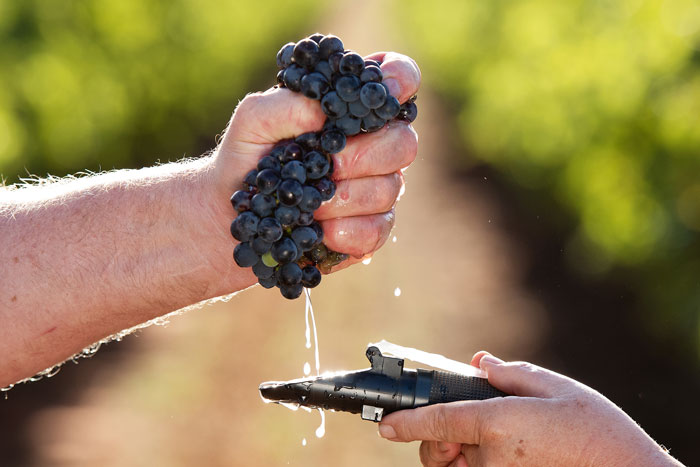
“Grape growers are always at the mercy of the elements… But it is water that is front and centre of the operation to produce the best possible grapes for premium South Australian wine.”
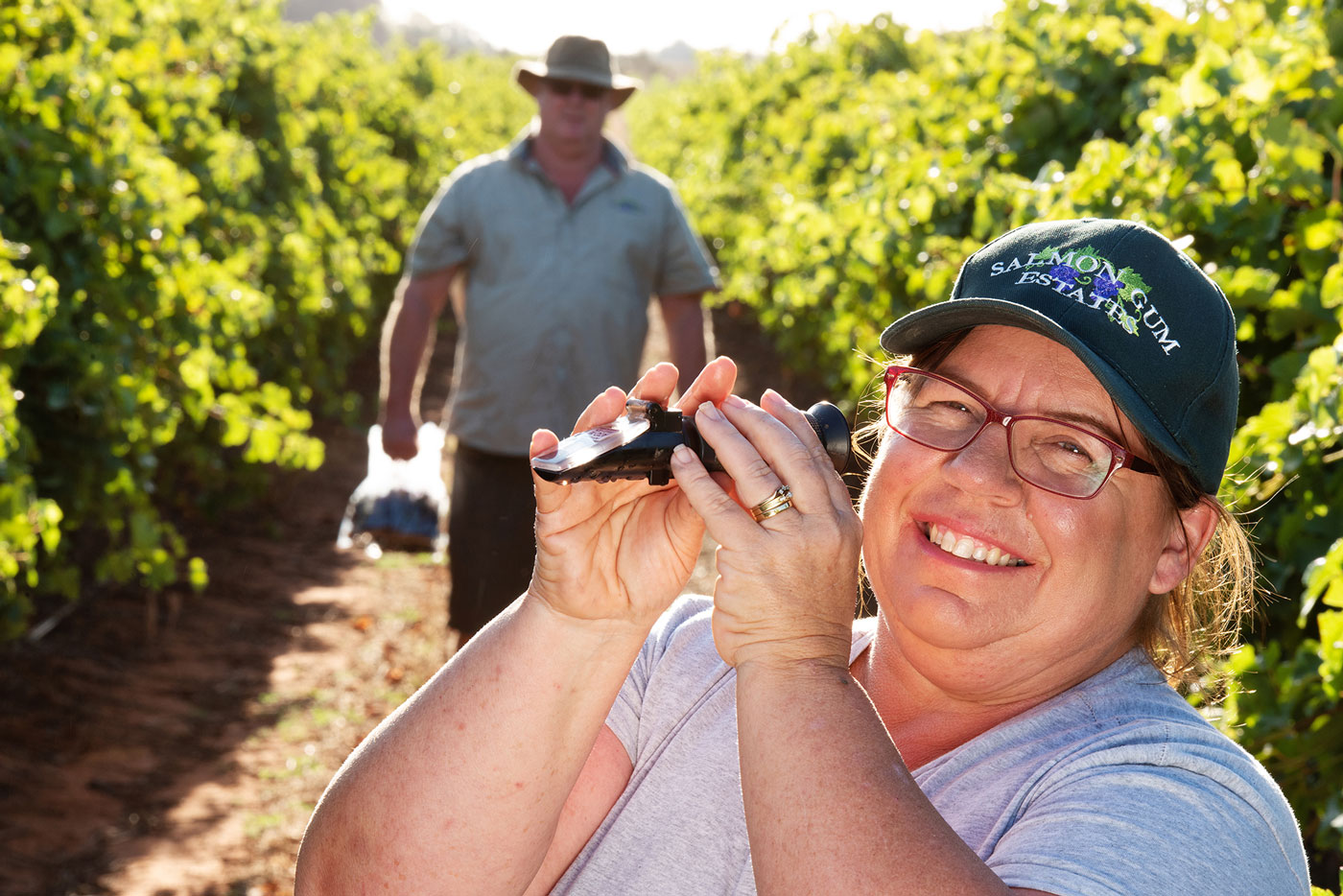
Brian Dominic takes their Shiraz, Cabernet, Pinot Gris and Chardonnay for his family wine company, Dominic Wines, but over the years he has become more than just a buyer of their grapes. They have formed a friendship based on trust and integrity. It is one of the sureties in a farming life that is constantly throwing ‘curve balls’.
“Now, with 500 acres, they are one of the bigger family vineyards in the Riverland wine region.”
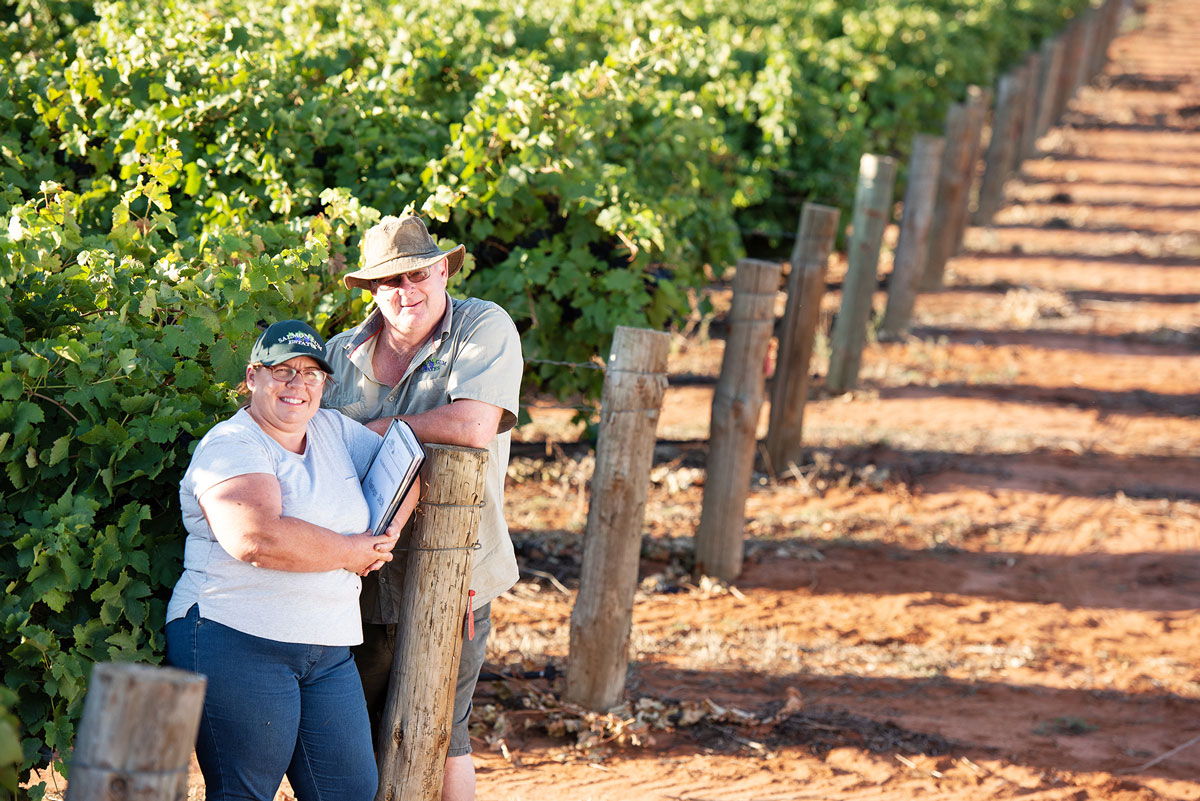
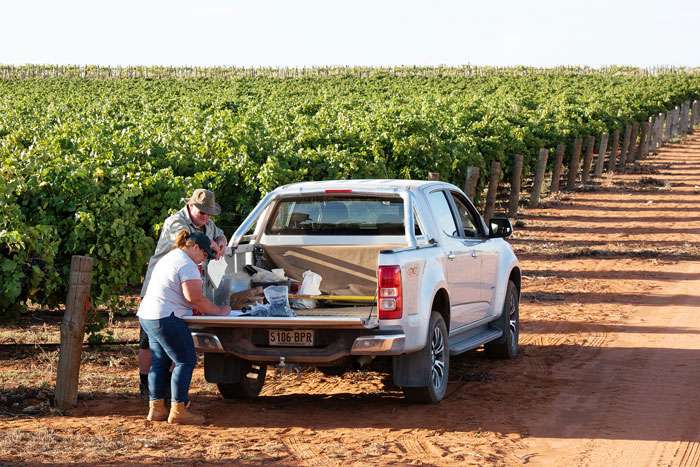
At the end of the season, there is time to take a breath. Peter revs up his 1900 Yamaha Cruiser and takes off, solo, for a week or ten days. The road opens up before him and he leaves the pressures of the vineyard behind. Back on the farm, Jacque finds the time to nourish her English cottage garden. There are times when she shares it with the public for wedding receptions, fundraising events and Open Garden weekends. For all its colourful prettiness, the garden is tough; surviving on block water and flush water recycled from the pump filter.
Both Peter and Jacque revel in the beauty of big trees planted in the 1950s for shade. One of trees is a magnificent Salmon Gum (Eucalyptus salmonophloia), after which the property is named. It has a smooth pale grey bark that is shed in flakes to reveal salmon-coloured new bark in summer. It’s a stunning transformation that is a metaphor for the Riverland wine region in general.


